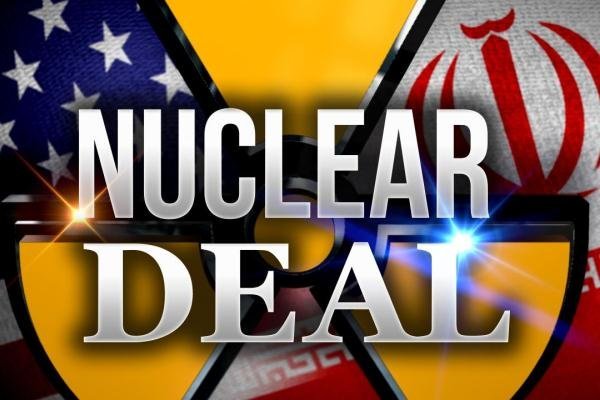A Prominent Choice for America and Europe

TEHRAN _ Over the past months, the U.S. President Donald Trump has repeatedly attacked the nuclear deal between Iran and members of the p 5+1, calling it the worst possible agreement.
During the U.S. presidential campaigns last year, Trump promised to tear up the nuclear deal with Iran as soon as he stepped at the White House! However, after taking power, the president of the United States found that such a promise was not easy to fulfill. He was faced with opposition from Russia, China and even the European Troika. After that, Trump decided to negotiate with the European Troika to change the nuclear deal.
During the recent meeting of the United Nations General Assembly in New York, Trump had intensive meetings with European officials on this issue. "Dealing with the JCPOA" has become the main concern of the President of the United States at the General Assembly this year. A recent Bloomberg report reported that the European Troika has been pushed for cancellation or modification of the Joint Comprehensive Plan of Action (JCPOA) to secure the interests of the United States. Although the duality (cancellation-change of the JCPOA) has been taken into consideration by European authorities, it has no importance as a solution for the authorities of Islamic Republic of Iran. Accordingly there are some points that need to be addressed: Firstly, in recent days, European officials have taken the tactic of "normalizing the renegotiations over the JCPOA".
Emanuel Macron, the French President, declared: "We agreed with the U.S. government that all measures to maintain the nuclear deal with Iran would remain. Today, the vague strategy of the United States against Iran and North Korea requires more integration of the European Union. Despite my full respect for the JCPOA, we are opposed to the development of Iran's missile program and will soon be discussing with other European leaders."
These statements by Macron is another green light from France to the United States for changing the JCPOA. France continues to speak with great respect to the JCPOA, but at the same time it has paves the way for re-negotiating the nuclear deal. French authorities have already mentioned that they are ready to discuss issues such as extending Iran's restrictions after 2025, as well as Iran's missile power issue.
At present, the French President is pursuing the same approach (reformation) with a different literature. Obviously, in this equation, Macron does not intend to behave in the same way as Laurent Fabius did between 1392 and 1394, in which case he will be accused of lack of commitment to international agreements.
On the other hand, the British authorities are also trying to simplify the issue of "changing the nuclear deal" and reforming it to meet the demands of Donald Trump. British Foreign Secretary Boris Johnson, after a controversial speech, said that the Congress was not calling for cancellation, but only for reform of the JCPOA.
This simplification is aimed at preparing Western public opinion to deal with the nuclear deal. In other words, American and European officials are trying to simplify this issue, making Iran's logical and legal resistance to reforming the JCPOA seem abnormal. Even the members of the Congress of the United States are not in conflict over the "full acceptance of the current version of the nuclear deal" or "withdrawal from the deal". In the U.S. Congress, many senators and members of the House of Representatives are in agreement with each other on the issue of reforming the nuclear deal (or better to say the full change of the JCPOA). This was the same demand that President Donald Trump made in his recent speech. Indeed, what is the difference between "abrogation of the JCPOA" and "change of the JCPOA"?
Trump's demands regarding the nuclear deal are such that the implementation of each one will change the nature of the deal and will undo this agreement naturally and practically. In such a situation, the European Troika and the U.S. Congress, instead of objection to impose any changes in the JCPOA (as the only way to keep it), are seeking to change the nuclear deal hoping to restrain Trump in this way. Obviously, "restraining Trump" is an issue that relates to the American Congress and the European Troika. The cost of this strategy should not be paid by our country.
What is certain is that the United States and the European Troika have only two options in this regard! These two options are "full commitment to the current version of the JCPOA" or "walking away from it." There isn't a third option here. In this regard, our country's diplomacy and foreign policy system must be resolutely and firmly asking the United States and Europe to choose between the two options, and to decide on the consequences of choosing each one.
If Washington and the European Troika are to choose the first option and stay true to the JCPOA, it is necessary to fulfill all their obligations in this regard. But if Washington and the European Troika opt for the second option and get out of the nuclear deal, they will face Iran's next moves and the resumption of our nuclear activities (with even a faster pace).
Finally, the dual play of American and European officials towards the JCPOA is absolutely unacceptable for us. The false dilemma drawn up by Trump and his European allies on maintaining the JCPOA through imposing changes in its content, does not fundamentally have any value for our country and will not be accepted by the Islamic Republic of Iran as it has never been acceptable before. Therefore, it is better for Washington and its allies to choose between the two options of exiting the JCPOA or full commitment to it.
Leave a Comment